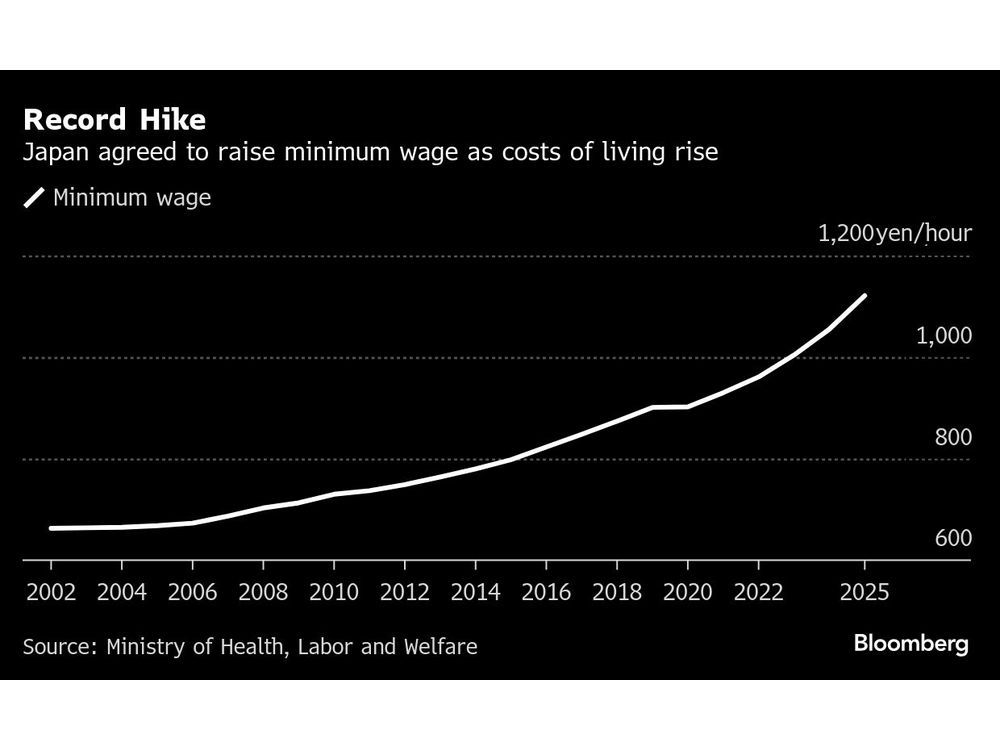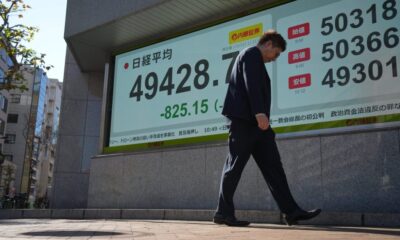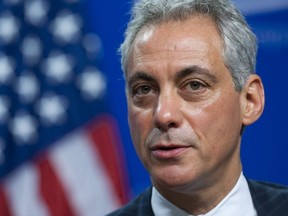Top Stories
Japan Announces Record 6.3% Minimum Wage Hike, Fuels Inflation Fears

BREAKING: Japan is set to increase its minimum hourly wage by a historic 6.3%, raising it to ¥1,121 ($7.56). This unprecedented hike, confirmed by the labor ministry earlier today, will take effect gradually starting in October and is expected to significantly impact the economy.
This wage increase represents the largest adjustment since records began in 1978 and applies to approximately three million workers across the nation. The move is seen as a critical step to bolster consumer spending and reinforce the ongoing wage-price cycle, a key element in the Bank of Japan’s (BOJ) strategy for potential further interest rate hikes.
As employers are likely to pass on the increased labor costs to consumers, this development raises concerns about inflation. Consumer prices in Japan have consistently surpassed the BOJ’s 2% target for over three years, with the latest report showing a 3.1% increase. The BOJ has recently adjusted its inflation outlook, prompting markets to speculate on the timing of future rate hikes.
Economist Takuya Hoshino from Dai-ichi Life Research Institute stated, “Food-related industries such as supermarkets, convenience stores, and restaurants will be impacted most, since they rely heavily on part-time staff at minimum wages. The hike may prolong food-driven inflation, pushing the BOJ toward further rate hikes.”
Last year, the prefecture of Tokushima led the country with a significant 9.4% increase, showcasing the local government’s commitment to improving worker compensation. Tokushima Governor Masazumi Gotoda highlighted the efforts made by both management and labor to enhance productivity, stating, “This is the fruit of tireless efforts.”
While the record wage increase aims to support workers, it may also pose challenges for businesses. Reports indicate that 172 firms went bankrupt in the first half of this year due to labor shortages, as many companies struggled to raise wages sufficiently. Ken Kobayashi, head of Japan’s chamber of commerce, warned that steep increases could hurt businesses, stating, “If the rise is too steep, companies will get hurt. Some may exit, and the infrastructure will start breaking down.”
Despite this ambitious wage hike, Japan’s minimum wage remains lower than in other G7 countries. For instance, Germany and Canada pay approximately €12.82 (¥2,217) and C$17.75 (¥1,906), respectively, while France’s minimum wage is set at €11.88 (¥2,055). Prime Minister Shigeru Ishiba has previously pledged to lift Japan’s minimum wage to ¥1,500 in the 2020s, a goal requiring annual increases exceeding 7%.
As Japan navigates the complexities of wage increases amid global economic pressures, including potential tariffs from the U.S., the implications for both workers and businesses remain to be seen. The government’s commitment to enhancing worker pay will be crucial in attracting skilled labor and fostering economic growth, especially as local regions like Tokushima aim to develop competitive industries.
Stay tuned for updates on how this record wage increase will shape Japan’s economic landscape and the potential ripple effects on consumer prices and business operations.
-

 Politics4 weeks ago
Politics4 weeks agoSecwepemc First Nation Seeks Aboriginal Title Over Kamloops Area
-

 World5 months ago
World5 months agoScientists Unearth Ancient Antarctic Ice to Unlock Climate Secrets
-

 Entertainment5 months ago
Entertainment5 months agoTrump and McCormick to Announce $70 Billion Energy Investments
-

 Science5 months ago
Science5 months agoFour Astronauts Return to Earth After International Space Station Mission
-

 Lifestyle5 months ago
Lifestyle5 months agoTransLink Launches Food Truck Program to Boost Revenue in Vancouver
-

 Technology3 months ago
Technology3 months agoApple Notes Enhances Functionality with Markdown Support in macOS 26
-

 Lifestyle3 months ago
Lifestyle3 months agoManitoba’s Burger Champion Shines Again Amid Dining Innovations
-

 Top Stories2 months ago
Top Stories2 months agoUrgent Update: Fatal Crash on Highway 99 Claims Life of Pitt Meadows Man
-

 Politics4 months ago
Politics4 months agoUkrainian Tennis Star Elina Svitolina Faces Death Threats Online
-

 Sports5 months ago
Sports5 months agoSearch Underway for Missing Hunter Amid Hokkaido Bear Emergency
-

 Politics5 months ago
Politics5 months agoCarney Engages First Nations Leaders at Development Law Summit
-

 Technology5 months ago
Technology5 months agoFrosthaven Launches Early Access on July 31, 2025





















